2021 SAA Fellows and Award Recipients
The Society of American Archivists (SAA) honors the accomplishments and innovations of more than two dozen outstanding individuals and organizations at its virtual conference ARCHIVES*RECORDS 2021: Together/Apart on August 2–6. Award categories include outstanding contributions to the archives profession, superior advocacy and public awareness initiatives, writing and publishing excellence, and scholarships and travel awards.
Congratulations to the following 2021 recipients!
Archival Innovator Award: NARA’s History Hub
The National Archives and Records Administration’s (NARA) History Hub is the 2021 recipient of the Archival Innovator Award from the Society of American Archivists (SAA). The award recognizes archivists, repositories, or organizations that show creativity in approaching professional challenges or the ability to think outside the professional norm or that have an extraordinary impact on a community through archives programs and outreach.
History Hub is a crowdsourcing platform that offers tools, such as discussion boards, blogs, and community pages, to bring together experts and researchers interested in American history. History Hub’s team—comprised of NARA community managers Kelly Osborn and Darren Cole, and NARA archivist Rebecca Collier—adapted an online, community-based customer service model that not only better meets the needs of NARA’s customers but also makes historical research more accessible to everyone.
A History Hub supporter wrote: “The team demonstrated the ability to think outside of archival and NARA norms in deploying an emerging information technology and required great ability to translate their creativity, innovation, and new thinking into acquiring and deploying a platform, training reference staff on its use and community management best practices, and promoting the platform to the public.”
Brenda S. Banks Travel Award: Shelly Black
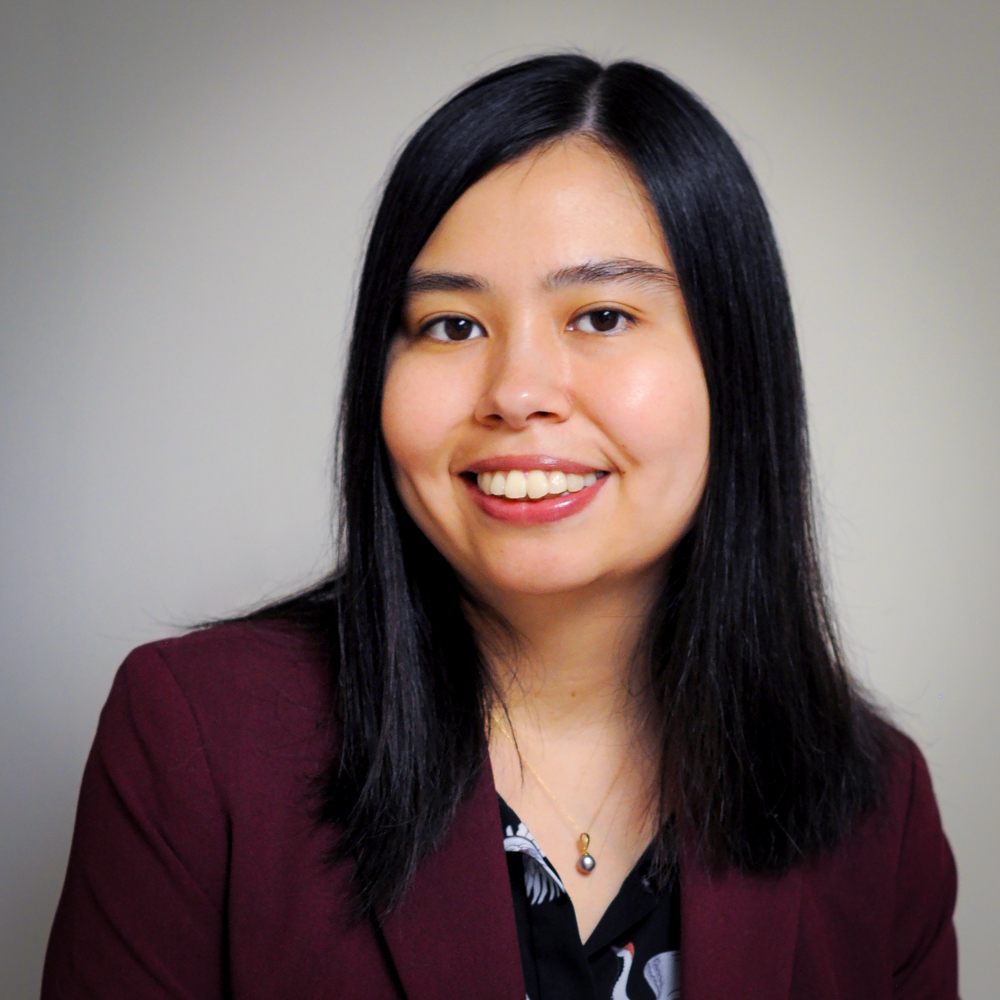 Shelly Black, the Cyma Rubin Library Fellow at North Carolina State University, is a 2021 recipient of the Brenda S. Banks Travel Award given by the Society of American Archivists (SAA). The award recognizes individuals of color who are employed in archives and who manifest an interest in becoming active members of SAA.
Shelly Black, the Cyma Rubin Library Fellow at North Carolina State University, is a 2021 recipient of the Brenda S. Banks Travel Award given by the Society of American Archivists (SAA). The award recognizes individuals of color who are employed in archives and who manifest an interest in becoming active members of SAA.
Black holds a master of arts in library and information science with a certificate in archival studies and a bachelor of fine arts in photography from the University of Arizona. During her graduate studies, she pursued internships that allowed her to work with diverse records and communities in the archives and was a member of the SAA student chapter at the university. Black has authored two peer-reviewed articles (in Archival Science and Social Media for Communication and Instruction in Academic Libraries) and presented at a number of conferences. She was named an American Libraries Association Emerging Leader in 2020 and is active in the SAA Privacy and Confidentiality Section Steering Committee.
In her nomination essay, Black noted the feeling of rootedness and belonging she felt when she eventually found collections that documented the stories of people who look like her, which inspired her to become an archivist. As the Cyma Rubin Library Fellow, in addition to supporting digital preservation efforts, Black continues to collaborate on projects that collect and preserve the records and stories of underrepresented groups.
C.F.W. Coker Award: Indigenous Digital Archive Treaties Explorer (DigiTreaties.org)
The Indigenous Digital Archive Treaties Explorer, created by the Museum of Indian Arts and Culture and the Indigenous Digital Archive, in partnership with the National Archives Office of Innovation and Conservation Department and Digirati, is the 2021 recipient of the C.F.W. Coker Award from the Society of American Archivists (SAA). The award recognizes finding aids, finding aid systems, innovative development in archival description, or descriptive tools that enable archivists to produce more effective finding aids. To merit consideration for the award, nominees must set national standards, represent a model for archives description, or otherwise have a substantial impact on national descriptive practice.
The Treaties Explorer (DigiTreaties.org) makes accessible and provides context for 374 ratified Indian Treaties held by the National Archives. The finding aid aggregates documents from a number of repositories and agencies and allows the public to explore treaties related to a place, date, and Native nation. A user-friendly website design that includes multiple visual elements and a timeline of the treaties helps people understand these archival documents and the shared histories of the United States and Native nations.
The Treaties Explorer is an innovative development in archival description as it prioritizes Native voices. From initial planning stages to the website launch, team members have collaborated with Native communities. As one nominator wrote, “Native experts have been integrally involved in the project design, research, website user experience and art direction, usability testing, additional refinements, and companion training videos and slides.”
The team behind the Treaties Explorer includes: Anna Naruta-Moya, Della Warrior (Otoe-Missouria), Matthew Martinez (Ohkay Owingeh), Donovan Pete (Diné), Sherri Thomas (Taos Pueblo and Black), Ben Calabaza (Kewa), and Lee Francis IV (Laguna Pueblo) from the Indigenous Digital Archives and Museum of Indian Arts and Culture; Pamela Wright, Ben Petersen, Carol Lagundo, Jason Clingerman, and the Conservation Department and Digitization staff of the National Archives and Records Administration Office of Innovation; and Matt McGrattan, Kelsie Caldwell, Ville Vartiainen, and Ian Farquhar from Digirati. The Treaties Explorer was made possible by an anonymous donor to the National Archives Foundation.
Established in 1984, the award honors SAA Fellow C.F.W. Coker.
Council Exemplary Service Award: Dorothy Berry
Society of American Archivists
Council Exemplary Service Award
Honoring
DOROTHY BERRY
WHEREAS Dorothy Berry has been actively involved in advocating for the increased visibility of records documenting African American life and culture, and
WHEREAS while serving as the Digital Collections Program Manager at Houghton Library, Harvard University, and in the wake of the murder of George Floyd and the nationwide protests that followed, she advocated for that institution to commit to a year of digitizing only African American materials, and
WHEREAS she secured support for that commitment from administrators and colleagues as a clear demonstration of how archivists can advocate for Black lives by applying their influence within their own scope of work, and
WHEREAS she continues to encourage all archivists to understand and consider their own power and apply it to correcting past injustices within the already existing operations of an archival institution,
NOW, THEREFORE BE IT RESOLVED that Dorothy Berry be honored with a 2021 Council Exemplary Service Award for her commitment to the preservation of and access to African American archival materials and setting an example for how all archivists can influence our own institutions to honor the legacy of marginalized communities.
Present August 3, 2021.
Council Exemplary Service Award: SAA Diversity Committee
Society of American Archivists
Council Exemplary Service Award
Honoring
THE SAA DIVERSITY COMMITTEE
WHEREAS the past year has seen an increase in race-based violence throughout the country, which which led the Society to discuss and begin addressing the impact of institutional racism in archives; and
WHEREAS the SAA Diversity Committee facilitated two public programs to discuss and solicit feedback on the Black Lives and Archives statement issued by the Council on June 2, 2020; and
WHEREAS the SAA Diversity Committee, through the leadership and coordination of Kelly Wooten and Teresa Mora and with significant support from Committee members, has performed notable service to SAA by reviewing and compiling the copious feedback and insights captured during the Black Lives and Archives sessions; and
WHEREAS the Diversity Committee has analyzed and consolidated the listening session data into four overarching and interconnected themes: 1) Recruitment and Retention, 2) Structural Barriers within SAA, 3) Participation in and/or Offering of DEI Training, and 4) Archival Practices; and has written and submitted a comprehensive report entitled “Feedback and Recommendations Following Black Lives and Archives Forums”; and
WHEREAS in its report, the Diversity Committee recommended specific actions and strategies that lay the groundwork for the Society’s Diversity, Equity, Inclusion, and Accessibility (DEIA) and cultural competency work plans;
NOW, THEREFORE, BE IT RESOLVED that the SAA Diversity Committee, be honored with a 2021 SAA Council Exemplary Service Award for their outstanding contributions to the Society’s ongoing DEIA/cultural competency efforts.
Presented on August 3, 2021.
Council Exemplary Service Award: SAA Staff
Society of American Archivists
Council Exemplary Service Award
Honoring
THE SAA STAFF
(Nancy Beaumont, Matthew Black, Teresa Brinati, Peter Carlson, Abigail Christian, Felicia Owens, Akila Ruffin, Carlos R. Salgado, Rana Hutchinson Salzmann, Michael Santiago, and Lakesha Thaddis)
WHEREAS the SAA Staff transitioned to working from home seamlessly while providing stellar service to SAA leaders and members during the COVID-19 pandemic; and
WHEREAS the SAA Staff successfully switched from a physical to a virtual annual meeting, including managing the technology and logistics prior to, during, and after the event; and
WHEREAS the SAA Staff provided professional, friendly assistance to Council and component group leaders in planning, scheduling, and running virtual webinars, forums, and meetings;
NOW, THEREFORE, BE IT RESOLVED that the SAA staff -- Nancy Beaumont, Matthew Black, Teresa Brinati, Peter Carlson, Abigail Christian, Felicia Owens, Akila Ruffin, Carlos R. Salgado, Rana Hutchinson Salzmann, Michael Santiago, and Lakesha Thaddis -- be honored with a 2021 SAA Council Exemplary Service Award for their outstanding work towards maintaining an efficient and productive association during the COVID-19 pandemic.
Presented August 3, 2021.
Council Exemplary Service Award: The Blackivists
Society of American Archivists
Council Exemplary Service Award
Honoring
THE BLACKIVISTS
(Steven D. Booth, Tracy Drake, Raquel Flores-Clemons,
Erin Glasco, Skyla S. Hearn, and Stacie Williams)
WHEREAS the Blackivists, a collective of Black archivists organized to prioritize Black cultural heritage preservation and memory work; and
WHEREAS this collective, founded by Steven D. Booth, Tracy Drake, Raquel Flores Clemons, Erin Glasco, Skyla S. Hearn, and Stacie Williams, provides training and consultation on archival projects, both digital and analog; and
WHEREAS they collaborate with organizations and individuals on archiving initiatives that inventory, document, digitize, and preserve the histories of communities of color, queer communities, working-class and under-resourced communities; religious minorities, and people with disabilities; and
WHEREAS the Blackivists speak, write, create, and provide expertise on a wide variety of topics of importance to community-based archives, take a people-first approach to their work, and prioritize projects that aim to more fully document marginalized and under-documented communities; and
WHEREAS in 2020 they published “Five Tips for Documenting Protests” and “Five Tips for Donating Your Materials” in response to protests against police brutality and systemic racism and documentation efforts around the COVID-19 pandemic. These recommendations prioritize the safety and agency of people and communities who are involved and affected;
NOW, THEREFORE, BE IT RESOLVED that the Blackivists--Steven D. Booth, Tracy Drake, Raquel Flores-Clemons, Erin Glasco, Skyla S. Hearn, and Stacie Williams--be honored with a 2021 SAA Council Exemplary Service Award for their work toward a more inclusive historical record.
Presented on August 3, 2021.
Council Resolution: Peter D. Carlson
Society of American Archivists
Council Resolution
Honoring
PETER D. CARLSON
WHEREAS Peter D. Carlson has worked as the SAA Director of Finance and Administration since April 2014; and
WHEREAS Peter represented the SAA staff to the Executive Committee on the process of the 2021 search for a new SAA Executive Director; and
WHEREAS Peter organized the first steps and coached the Executive Committee in selecting an executive search firm; and
WHEREAS Peter screened a number of firms, reporting back to the Executive Committee with his impressions and advice; and
WHEREAS Peter centered the values of the SAA Council, in particular a commitment to diversity, equity, and inclusion, in this process;
NOW, THEREFORE, BE IT RESOLVED that Peter D. Carlson be honored with a 2021 SAA Council Resolution for informing, educating, and empowering the Executive Committee; for representing his team of coworkers with the professionalism, regard, and care for which SAA staff are known; for seamlessly embracing these additional responsibilities while also expertly managing SAA’s finances and the turbulence of the coronavirus epidemic; and for modeling strong ethics and values in his contributions to the search for SAA’s Executive Director.
Presented August 3, 2021.
Distinguished Service Award: Knox County Archives and Doris Rivers Martinson
View Knox County Archives video.
The Knox County Archives in Tennessee and its former manager, the late Doris Rivers Martinson, are the 2021 recipients of the Distinguished Service Award given by the Society of American Archivists (SAA). The award recognizes an archives institution, education program, nonprofit organization, or government organization that has given outstanding service to its public and has made an exemplary contribution to the archives profession.
The Knox County Archives has taken many steps to preserve and make accessible its records to residents since the government’s early beginnings in the eighteenth century. After shifting from various residents' homes and courthouse basements, professional management of the archives began in 1933, leading to a formal establishment of an Old Records Department in 1941. Then, in 1963, Knox County’s Public Records Commission was formed “to eliminate useless records not required to be kept under the present statutes," requiring significant remodeling of the facility and updated technology.In 1972, administration of the archives was transferred to Knox County Public Library and, in 1984, the archives was physically moved into Knoxville’s 1874 US Custom House, which had been designated by the library as a “history center” for both the archives and the Calvin M. McClung Historical Collection. The archives’ most recent transition was in 2004, when the East Tennessee History Center was expanded to house all of the county’s permanent, historical records and to create more extensive public access via the Knox County Archives Reading Room.
These last two transitions were overseen by Doris Rivers Martinson, county archivist and archives manager for thirty-three years until her retirement in February 2020. During her influential tenure, Martinson codrafted a National Historical Publications and Record Commission grant proposal to establish the formal County Records Management program in 1989—for the first time making life-cycle management of official records in all media types a standard component of county administrative operations. Martinson’s significant contributions have preserved the history of the county’s government and created ways for the public to meaningfully engage with it. Her legacy will be remembered during the Knox County Public Library’s celebration of the archives’ Golden Anniversary, which continues into 2022. Martinson passed away on January 27, 2021. The Knox County Archives Reading Room is named in her honor.
One supporter wrote, “Honoring the Knox County Archives with this award recognizes the dedication of public servants like Martinson as well as rewards the resourcefulness, ingenuity, and vision of institutions that continually find new ways to serve the public through their archival missions.”
Diversity Award: Judy Tyrus
 Judy Tyrus, cofounder and CEO of ChromaDiverse, Inc., is a 2021 recipient of the Diversity Award given by the Society of American Archivists (SAA). The award recognizes outstanding contributions in advancing diversity within the archives profession, SAA, or the archival record.
Judy Tyrus, cofounder and CEO of ChromaDiverse, Inc., is a 2021 recipient of the Diversity Award given by the Society of American Archivists (SAA). The award recognizes outstanding contributions in advancing diversity within the archives profession, SAA, or the archival record.
Formerly a principal ballet dancer at Dance Theatre of Harlem (DTH) for twenty-two years, Tyrus is passionate about protecting the heritage of diverse dance organizations. She is the archivist and curator for DTH’s materials in Taking the Stage at Smithsonian’s National Museum of African American History and Culture. She served in the same capacity for several successful exhibitions including Dance Theatre of Harlem: 40 Years of Firsts, and a series of digital exhibits on the Google Arts and Culture platform.
In 2019, Tyrus cofounded the nonprofit ChromaDiverse, Inc. that works with diverse dance organizations, many of which lack financial resources or archival knowledge. Her company provides digital archives management services at low cost and offers a flexible Cloud-based “Digital Vault” with a scalable taxonomy for performing arts content. In addition, Tyrus is coauthor with Paul Novosel of a new book, Dance Theater of Harlem: A History, A Movement, A Celebration, forthcoming in November 2021 from Dafina, an imprint of Kensington Publishing. The book highlights the famous ballet company’s fifty-two-year history and its promotion of multicultural dance artists.
As noted by one supporter, Tyrus has a passion for “protecting the accomplishments of diverse dance organizations and keeping them from being erased from history. Every step of the way, Tyrus translates her passions into concrete and pragmatic steps to accomplish her goals.”
The Diversity Award was established by SAA in 2011.
Donald Peterson Student Travel Award: Sidney Louie
Sidney Louie, a graduate student in the University of Hawai’i at Mānoa Library and Information Science Program, is the 2021 recipient of the Donald Peterson Student Travel Award given by the Society of American Archivists (SAA). The award supports students and recent graduates from graduate archival programs within North America to attend SAA’s Annual Meeting. The goal of the scholarship is to stimulate greater participation in the activities of SAA, such as presenting research or actively participating in an SAA-sponsored committee or section.
After working for thirty years in event and media marketing, Louie transitioned to archival studies. She works part time as a project assistant at ’Ulu’ulu: The Henry Ku’ualoha Giugni Moving Image Archive of Hawai’i at the University of Hawai’i – West O’ahu where she processes, describes, catalogs, and preserves several television programs containing Hawaiian cultural content. During the virtual Annual Meeting, Louie will participate in events hosted by the Committee on Public Awareness and Diversity Committee to connect and build networks with archivists outside Hawai’i.
Louie possesses intelligence, creativity, and a passion for preserving archives. Her supporter notes that they are “impressed by Louie’s passion for film and audiovisual media and her deep respect for the archival Hawaiian and Pacific cultural materials.”
The Donald Peterson Student Travel Award was established in 2005 and honors the memory of New York lawyer and philatelist Donald Peterson.
F. Gerald Ham and Elsie Ham Scholarship: aems emswiler
aems emswiler, a doctoral student in the School of Information at the University of Arizona, is the 2021 recipient of the F. Gerald Ham and Elsie Ham Scholarship given by the Society of American Archivists (SAA). The $10,000 scholarship supports the graduate archival education of a student who is studying at a United States university program. Scholarship selection criteria include the applicant’s past performance in their graduate program in archival studies as well as faculty members’ assessment of the student’s prospects for contributing to the archives profession.
emswiler holds dual master’s degrees in information studies and women’s and gender studies from the University of Texas, Austin, where they were active in their SAA student chapter and received the Trailblazer Award by the Texas Digital Library for their work preserving and digitizing materials through Omeka. In their insightful application essay, they describe their developing awareness of the importance of archives and archivists to protect controversial resources and the rights of others. emswiler was an Archival Fellow for the Texas After Violence Project (TAVP), and from 2012 to 2020, they documented the impacts of carceral state violence on incarcerated peoples in Texas and worked to provide information access for people on death row. Their interest in the intersection of community archives, critical archival studies, and narratives of incarceration led to founding the Inside Books Project (IBP) Archive. IBP is a nonprofit books-to-prisons collective, and its archives preserves and makes public the writings and art sent by incarcerated patrons as well as evidences of IBP's history, such as newsletters, event fliers, and photographs.
emswiler impressed the SAA Awards Committee with their drive to explore both theory and practice as it relates to ignored and underdocumented communities and the potential of their future contributions to the archival profession. One of emswiler’s faculty nominators noted: “Talented, dedicated, generous, and incredibly smart, emswiler demonstrates a commitment and remarkable ability to approach their archival work, community commitments, and pedagogical pursuits with integrity and in a way that is cohesive and includes meaningful outreach.”
Fellow: Katherine Wisser
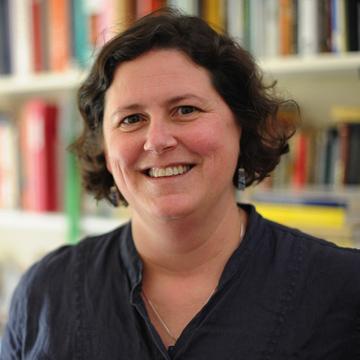 Katherine Wisser, associate professor at the School of Library and Information Science and director of the Archives Concentration and Archives Certificate programs at Simmons University in Boston, Massachusetts, will be inducted as a Fellow of the Society of American Archivists (SAA) on August 4 during a virtual ceremony at the SAA Annual Meeting. The distinction of Fellow is the highest honor bestowed on individuals by SAA and is awarded for outstanding contributions to the archives profession.
Katherine Wisser, associate professor at the School of Library and Information Science and director of the Archives Concentration and Archives Certificate programs at Simmons University in Boston, Massachusetts, will be inducted as a Fellow of the Society of American Archivists (SAA) on August 4 during a virtual ceremony at the SAA Annual Meeting. The distinction of Fellow is the highest honor bestowed on individuals by SAA and is awarded for outstanding contributions to the archives profession.
An enthusiastic educator and indefatigable leader in archival standards development, Wisser holds a master’s degree in American history from the University of New Hampshire and a master’s degree and PhD in information and library science from the University of North Carolina–Chapel Hill. Since 2002, Wisser has held a number of leadership positions within SAA’s sections on metadata and description, and led or contributed to two major revisions of foundational technical standards for archival metadata. From 2006 to 2011, she served as chair of SAA’s Encoded Archival Context Working Group, shepherding Encoded Archival Context–Corporate Bodies, Persons, and Families (EAC–CPF) through approval and publication. She then served as co-chair of the Technical Subcommittee for Encoded Archival Context and the Technical Subcommittee for Encoded Archival Standards, working to revise the Encoded Archival Description, Version 3 (EAD3) standard. Her work on EAC-CPF and EAD3 cemented SAA's status as a cooperative partner in the international archival standards community, advanced the technological underpinnings of archival metadata, and promoted a new networked model of archival description.
In addition, Wisser has written, presented, and taught extensively on these standards, enabling their practical and widespread application. She is anecdotally credited with teaching EAD to the entire state of North Carolina via her “Introduction to EAD” workshop, which she taught between 2002 and 2007. She had a similar impact within SAA as co-instructor of “MARC According to DACS,” which was crucial to propagating Describing Archives: A Content Standard (DACS) following its publication in 2004, and as instructor of “New Standard: Encoded Archival Context – Corporate Bodies, Persons, and Families (EAC-CPF),” both of which she taught more than a dozen times. In 2015, she guest edited with Anila Angjeli a special issue, “Identity Matters: Describing and Interconnecting Entities with EAC-CPF,” for the Journal of Archival Organization.
One of Wisser’s supporters notes that her work has made “critically important contributions to understanding hidden biases that may be embedded in both past and emergent archival description practices.” Another wrote that she “infuses her standards development work at the national and international level with a deep understanding of the people working on the ground.”
Wisser is one of two new Fellows named in 2021. There are currently 196 Fellows of the Society of American Archivists.
Fellow: Tamar Chute
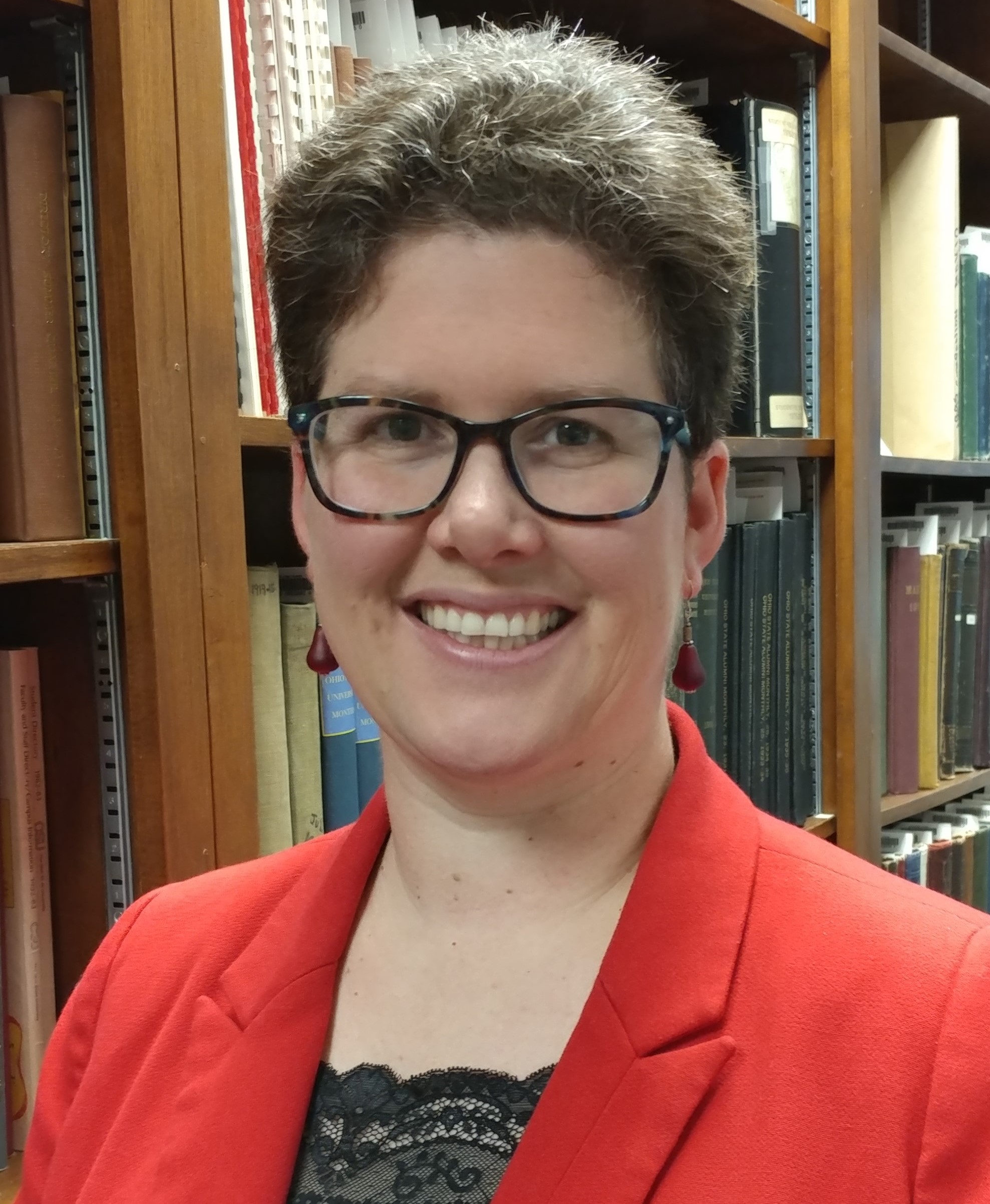
Tamar Chute, university archivist and head of archives at Ohio State University (OSU) in Columbus, will be inducted as a Fellow of the Society of American Archivists (SAA) on August 4 during a virtual ceremony at the SAA Annual Meeting. The distinction of Fellow is the highest honor bestowed on individuals by SAA and is awarded for outstanding contributions to the archives profession.
Chute, who earned a BS from the University of Michigan and an MLS from the University of Maryland, has distinguished herself as a leading expert and strategic thinker on records management in higher education. She significantly raised the profile of OSU’s archives during the university’s sesquicentennial celebrations. A long-time member of the Big Ten Academic Alliance’s University Archivists Group, Chute led the creation of the online exhibit “Beanies of the Big Ten,” which highlighted student traditions in Big Ten universities and strengthened ties among the universities. Partnering with primary founder Lae’l Hughes-Watkins, Chute was also instrumental in the development of Project STAND, the national initiative documenting underrepresented communities’ engagement in social justice activism. In 2019, she and her colleagues received an SAA Council Resolution for their work on Project STAND.
Chute has written extensively on archival management, data curation, archival instruction, and archives terminology. She coauthored two modules in Teaching with Primary Sources, which became the inaugural selection in SAA’s One Book, One Profession initiative in 2016. Within the SAA College and University Archives Section, she served as chair of the Guidelines Review Committee to identify best practices for university archivists and their employers. A member of SAA’s Dictionary Working Group since 2013, Chute and her colleagues launched the Dictionary of Archives Terminology (DAT) in 2020. The online resource, which required hours of research over the course of nearly a decade, now accounts for ten percent of visitors to the SAA website. The SAA Council honored the Dictionary Working Group with an Exemplary Service Award in 2020.
Chute’s nominators uniformly reference the value of her scholarship to the profession, her commitment to inclusiveness, and her advocacy of archives. One nominator noted: “She exhibits a collaborative spirit, an intrinsic dedication to outreach, and a commitment to promoting the value and accessibility of the archival record that make her the admired leader, expert, and mentor that she is.”
Chute is one of two new Fellows named in 2021. There are currently 196 Fellows of the Society of American Archivists.
Fellows’ Ernst Posner Award: Katherine Fisher
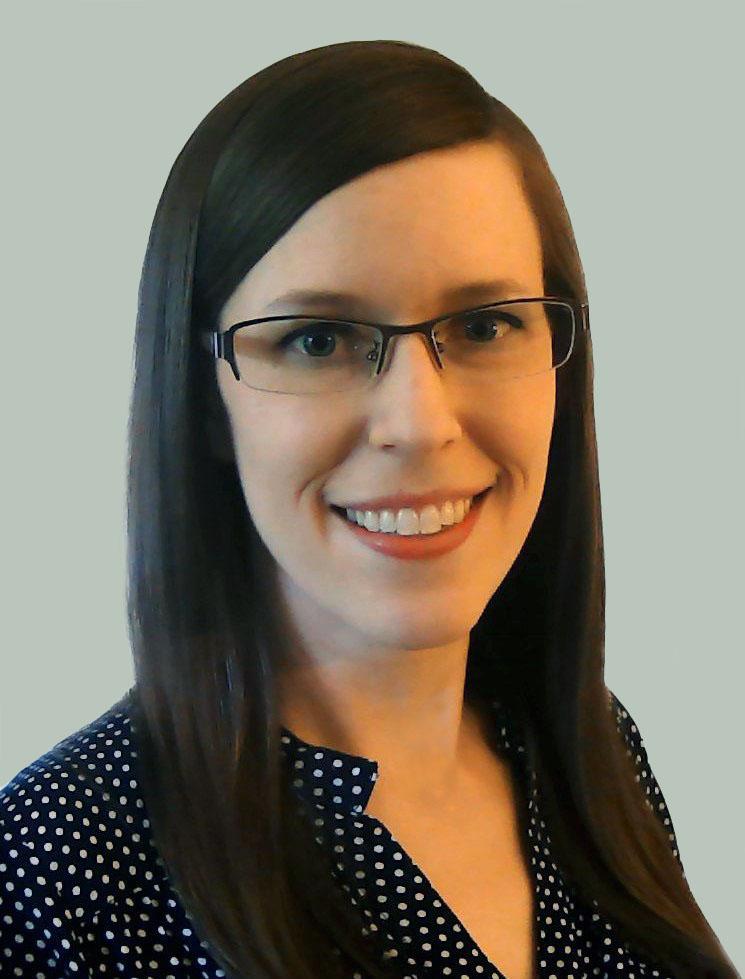 Katherine Fisher, head of digital archives at the Stuart A. Rose Manuscript, Archives, and Rare Book Library at Emory University, is the 2021 recipient of the Fellows’ Ernst Posner Award given by the Society of American Archivists (SAA). The award recognizes an outstanding essay dealing with some facet of archival administration, history, theory, and/or methodology that was published during the preceding year in SAA’s journal, American Archivist.
Katherine Fisher, head of digital archives at the Stuart A. Rose Manuscript, Archives, and Rare Book Library at Emory University, is the 2021 recipient of the Fellows’ Ernst Posner Award given by the Society of American Archivists (SAA). The award recognizes an outstanding essay dealing with some facet of archival administration, history, theory, and/or methodology that was published during the preceding year in SAA’s journal, American Archivist.
Fisher is being honored for “Copyright and Preservation of Born-digital Materials: Persistent Challenges and Selected Strategies,” which appeared in the Fall/Winter 2020 issue of American Archivist (vol. 83, no. 2). Her article addresses the complex topic of US copyright law as it relates to long-term preservation of born-digital records, an area of broad interest and concern in the archival profession. Fisher provides clear, concise explanations of preservation-inhibiting constraints in current copyright law, including outdated understandings of copying, murky publication statuses, multilayered rights, and barriers imposed by Digital Rights Management technologies. Fisher offers advocacy and procedural strategies that are relevant for organizations and repositories of all sizes.
The SAA Awards Committee commends Katherine Fisher for compiling “so much information, some of it quite recent, in such a cogent and approachable fashion” and noted that this article is “an important tool that can be used by a wide variety of professionals” in understanding the challenging, evolving copyright issues relevant to preserving born-digital records.
Established in 1982, the award is named for Ernst Posner, an SAA Fellow and former president as well as a distinguished author.
Harold T. Pinkett Student of Color Award: Aparna Subramanian
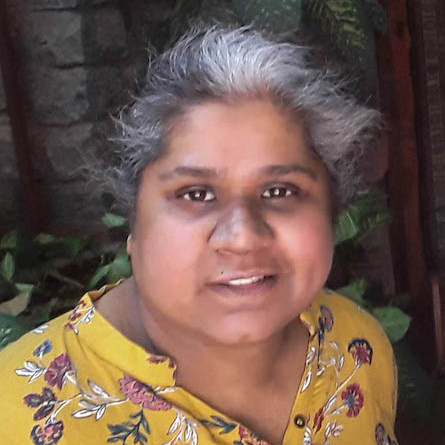 Aparna Subramanian, a graduate student in the Moving Image Archiving and Preservation Program at New York University (NYU), is a 2021 recipient of the Harold T. Pinkett Student of Color Award given by the Society of American Archivists (SAA). The award recognizes BIPOC graduate students who, through scholastic achievement, manifest an interest in becoming professional archivists and active members of SAA.
Aparna Subramanian, a graduate student in the Moving Image Archiving and Preservation Program at New York University (NYU), is a 2021 recipient of the Harold T. Pinkett Student of Color Award given by the Society of American Archivists (SAA). The award recognizes BIPOC graduate students who, through scholastic achievement, manifest an interest in becoming professional archivists and active members of SAA.
Subramanian’s passion for preserving audiovisual materials is evident in the evolving focus of her career. Noting a lack of archival training for media preservation in India and South Asia, she enrolled at NYU and became an active member of SAA and the Association of Moving Image Archivists (AMIA). Subramanian has received a number of grants and scholarships focusing on the preservation of audiovisual materials. Her work experiences include internships at the Smithsonian Design Museum, Weill Cornell Medicine, and the National Film Archive of India. She also worked on the NYU’s Regional Media Legacies Project, where she spearheaded renewed outreach to small historical organizations with hidden audiovisual collections; and served as a graduate assistant for the Digital Preservation and Outreach Education Network for Pratt Institute and NYU Tisch School of the Arts.
One supporter commended Subramanian’s “big picture understanding of media archiving needs and possibilities both locally and internationally.” These experiences—especially in associations—have informed her vision to bolster archival education opportunities and create strong archival professional networks in India and South Asia.
Josephine Forman Scholarship: Hinaikawaihiʻilei Keala
Hinaikawaihiʻilei Keala is the 2021 recipient of the Josephine Forman Scholarship sponsored by the General Commission on Archives and History of the United Methodist Church, in cooperation with the Society of American Archivists (SAA). The $10,000 scholarship provides financial support to minority students pursuing graduate education in archival science, encourages students to pursue careers as archivists, and promotes the diversification of the American archives profession.
Keala is pursuing dual master’s degrees in Hawaiian studies and library and information science with an Archives Certification at the University of Hawaiʻi at Mānoa. She is a graduate research assistant for Native Hawaiian Student Services at the university, a student service office under the Hawaiʻinuiākea School of Hawaiian Knowledge that offers culture-based and experiential learning opportunities for Native Hawaiian students. Keala oversees the officeʻs Kekaulike internship program and assists with programming. Her passion for preserving Hawaiian culture and history led her to pursue a career in archives. Seeing a need for the Hawaiian language to be present in archival access points, she is focused on preserving and providing access to Hawaiian-language archival materials for the Indigenous community.
Keala has devoted her career to serving her community and Hawaiian people. As one of her recommenders wrote, “She engages in the work she does because she cares about issues of justice and humanity and wants to see positive changes made in our community. As such, an investment in Keala is an investment in the larger communities of Hawaiʻi that she is committed to and will continue to work in service for.”
The Josephine Forman Scholarship was established in 2010 and is named for Josephine Forman, who served as archivist for eighteen years at the Southwest Texas Conference of the United Methodist Church.
Mark A. Greene Emerging Leader Award: Dorothy Berry
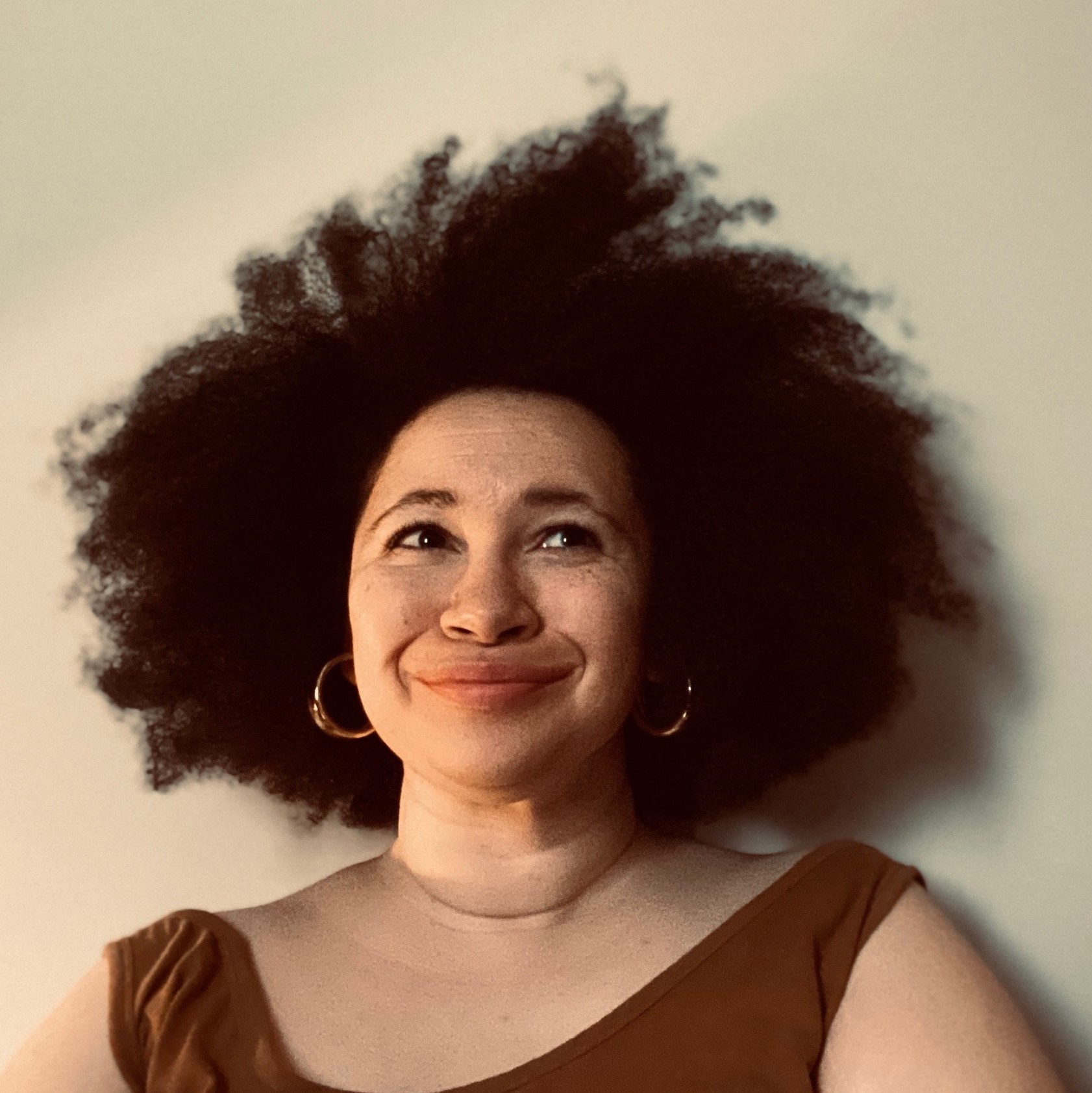 Dorothy Berry, Digital Collections program manager at Harvard University’s Houghton Library, is the 2021 recipient of the Mark A. Greene Emerging Leader Award from the Society of American Archivists (SAA). The award celebrates and encourages early-career archivists who have completed archival work of broad merit, demonstrated significant promise of leadership, and performed commendable service to the archives profession.
Dorothy Berry, Digital Collections program manager at Harvard University’s Houghton Library, is the 2021 recipient of the Mark A. Greene Emerging Leader Award from the Society of American Archivists (SAA). The award celebrates and encourages early-career archivists who have completed archival work of broad merit, demonstrated significant promise of leadership, and performed commendable service to the archives profession.
Berry’s work at Houghton Library has transformed the way the institution’s materials relating to Black Americans and their history are presented and accessed. In the last two years, she has surveyed the Harvard Theatre Collection’s minstrel materials for inaccurate and problematic description and developed a proposal for a more just, accurate, and contextualized description. In 2020, Berry developed and oversaw a unique project: to digitize African American history materials and create a research dataset and collections site where these materials can be freely accessed.
Berry’s exemplary leadership and service is evident in her work with SAA, the Institute for Museum and Library Services, the Council on Library and Information Research, Digital Library Federation, Archives for Black Lives in Philadelphia, and Lighting the Way National Forum. She is a sought-after speaker on social justice, culturally diverse digital collections, and the intersection of issues of race and ethnicity with archival work. In 2020, Berry gave presentations to audiences of hundreds for regional organizations and humanities institutions, including SAA’s “Community Reflection on Black Lives and Archives.” She speaks openly, honestly, and compellingly about the most challenging aspects of archival work, presenting with kindness and empathy to help archivists better comprehend what it means to be anti-racist and how to take appropriate action.
Berry’s supporters cite her strong leadership, intellectual curiosity, and dedication to the archives profession and her peers. One nominator wrote, “Her overall brilliance, work ethic, courage, and dedication create a potent leadership package, one she is using to help the profession improve and reinvent ourselves.”
Established in 2011 and renamed in 2017, the award honors SAA Fellow and Past President Mark A. Greene.
Mosaic Scholarship: Christopher Castro
 Christopher Castro, who is pursuing a master’s degree in library and information science with a specialization in media archival studies at the University of California, Los Angeles (UCLA), is the 2021 recipient of the Mosaic Scholarship given by the Society of American Archivists (SAA). The $5,000 scholarship is given to a student who demonstrates potential for scholastic and personal achievement and who manifests a commitment both to the archival profession and to advancing diversity concerns within it.
Christopher Castro, who is pursuing a master’s degree in library and information science with a specialization in media archival studies at the University of California, Los Angeles (UCLA), is the 2021 recipient of the Mosaic Scholarship given by the Society of American Archivists (SAA). The $5,000 scholarship is given to a student who demonstrates potential for scholastic and personal achievement and who manifests a commitment both to the archival profession and to advancing diversity concerns within it.
In addition to a strong academic record, Castro has a passion for audiovisual preservation and community history. He previously interned at the Palo Alto City Library, where he was instrumental in training staff for and launching the library’s Vintage Media Lab. Currently, he is the audiovisual preservation specialist with the Palo Alto Historical Association, where he works with at-risk materials, and a library page with the Alameda County Library, where he is an active member of its Justice, Equity, Diversity, and Inclusion (JEDI) Committee. A Filipino-American, he also served on the executive board of the Pilipino Transfer Student Partnership at UCLA.
Castro hopes to become a mentor to other aspiring archivists of color and to increase representation of people of color both within the profession and in traditional and community archival collections. He writes, “I believe that wider access to Filipino-American archival collections can actively recontextualize Filipinos' own sense of self and affirm their belonging within the American narrative.”
One of his supporters wrote: “From the very beginning, Castro’s knowledge and enthusiasm for the work set him apart from his predecessors.” Another celebrated “his keen awareness of social justice issues, wealth of knowledge, approachable nature, and passion to further diversity initiatives within the workplace.”
First awarded in 2009, the Mosaic Scholarship also provides recipients with a one-year membership in SAA and a complimentary registration to the SAA conference.
Oliver Wendell Holmes Travel Award: Jiarui Sun
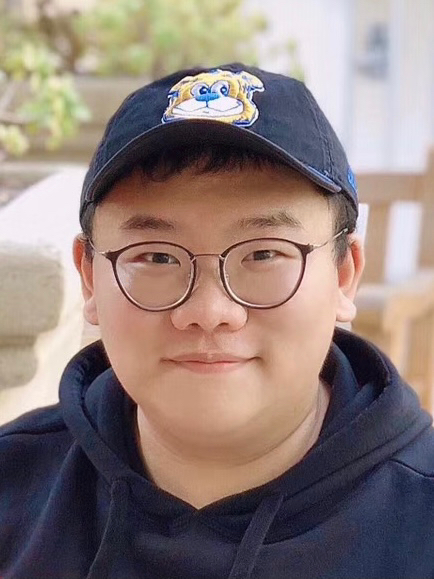 Jiarui Sun, a PhD student in Information Studies at the University of California, Los Angeles (UCLA), is the 2021 recipient of the Oliver Wendell Holmes Travel Award from the Society of American Archivists (SAA). The award enables international archivists who are training or studying in the United States or Canada to augment their experience by attending the SAA Annual Meeting.
Jiarui Sun, a PhD student in Information Studies at the University of California, Los Angeles (UCLA), is the 2021 recipient of the Oliver Wendell Holmes Travel Award from the Society of American Archivists (SAA). The award enables international archivists who are training or studying in the United States or Canada to augment their experience by attending the SAA Annual Meeting.
Sun has impressive research experience and publication history and has received numerous awards, including the 2020 James V. Mink Scholarship from the Society of California Archivists. Before enrolling at UCLA, he earned a master’s degree in archival studies from Renmin University of China and a bachelor's degree in archival studies from Shandong University. His research interests include archival informatics, community-based archives, and qualitative research methods and design. At UCLA, Sun is researching ethical considerations triggered by new technology applications in archives, under the supervision of Professor Anne Gilliland, which he will present at the International Council on Archives’s 2021 conference in Abu Dhabi. The knowledge and experience from his education and professional conferences have become a precious asset to his understanding of history and technologies associated with archives and recordkeeping.
Attendance at SAA’s 2021 Annual Meeting will allow Sun to gain additional knowledge and skills for augmenting his PhD research, as well as network with colleagues he would otherwise never meet. Sun writes that “attending this conference will enable me to establish friendships and long-term cooperative relationships with many other archivists who share the same interests with me.”
Established in 1979, this award honors SAA Fellow and former President Oliver Wendell Holmes.
Philip M. Hamer–Elizabeth Hamer Kegan Award: California State University Japanese American Digitization Project
The California State University Japanese American Digitization Project (CSUJAD) is the 2021 recipient of the Philip M. Hamer–Elizabeth Hamer Kegan Award given by the Society of American Archivists (SAA). The award recognizes individuals or institutions that have increased public awareness of archives documents.
CSUJAD, a collaborative effort among a number of partner institutions in California and Utah, provides access to digitized archival collections related to the lives of Japanese Americans throughout the twentieth century. CSUJAD's website includes an extensive user guide and provides descriptions of the specific collections held at each partner institution, along with links to digital repositories. The project's goal is to make these archival collections more easily accessible to a wide range of visitors, and its website includes supplemental resources such as timelines, maps, sample lesson plans, and lists of related publications to assist its users. In addition, the project has inspired a number of exhibits, events, and even a student-created zine.
By unifying these collections in a single web portal, CSUJAD exemplifies the power of long-term collaboration between repositories and demonstrates a commitment to facilitating access to related archival records housed in disparate geographic locations. As one supporter noted, these records are valuable by themselves, but by connecting them via metadata, CSUJAD allows for “vast access to formerly isolated materials” and for the larger story of Japanese Americans to be told.
Preservation Publication Award Special Commendation: Karl-Rainer Blumenthal, Peggy Griesinger, Julia Kim, Shira Peltzman, and Vicky Rampin
Karl-Rainer Blumenthal, web archivist at the Internet Archive; Peggy Griesinger, head of metadata initatives at University of Notre Dame; Julia Kim, digital projects coordinator and program manager at the National Library Service for the Blind and Print Disabled at the Library of Congress; Shira Peltzman, digital archivist for Library Special Collections at the University of California, Los Angeles; and Vicky Rampin, librarian for Research Data Management and Reproducibility at New York University, received a Preservation Publication Award Special Commendation from the Society of American Archivists (SAA) for their article, “What's Wrong with Digital Stewardship: Evaluating the Organization of Digital Preservation Programs from Practitioners' Perspectives.” The commendation recognizes excellence in a published work on archival preservation.
The article, published in volume 7 of the Journal of Contemporary Archival Studies, offers a nuanced report on the increasing dissatisfaction expressed by digital archivists about their work experiences and a call for a fair and effective restructuring of the role digital stewardship plays in many institutions. The article reviews results from surveys conducted by the National Digital Stewardship Alliance from 2012 to 2018 that target archival practitioners in all positions, not just administrative roles. The authors write that “even as the field of digital stewardship is entering a period of operational maturity, practitioners largely consider digital stewardship values and goals to be misunderstood at an organizational level” and that there is a gap between senior organizational leaders and digital stewardship practitioners in terms of attitudes toward and satisfaction with digital stewardship and preservation programs. “What’s Wrong” identifies problems contributing to the dissatisfaction and offers solutions for issues of labor distribution, salary equity, inclusion, and long-term planning that institutional leaders can implement. In doing so, this article is useful not only to archivists but to any professional concerned with the management of digital assets.
The Awards Committee commends the authors for the importance of this work to the archival profession. One committee member stated that this article “foregrounds and elevates the day-to-day lived experiences of practitioners who are actively engaged in digital stewardship where former research has focused on administrators.” Another declared that this article “best described many practioners’ frustrations in doing preservation work effectively. It is a seminal work that highlights, in no uncertain terms, why digital preservationists are burning out. It should be required reading at all institutions addressing digital preservation challenges, particularly for administrators.”
Preservation Publication Award: Alexandra Chassanoff and Colin Post
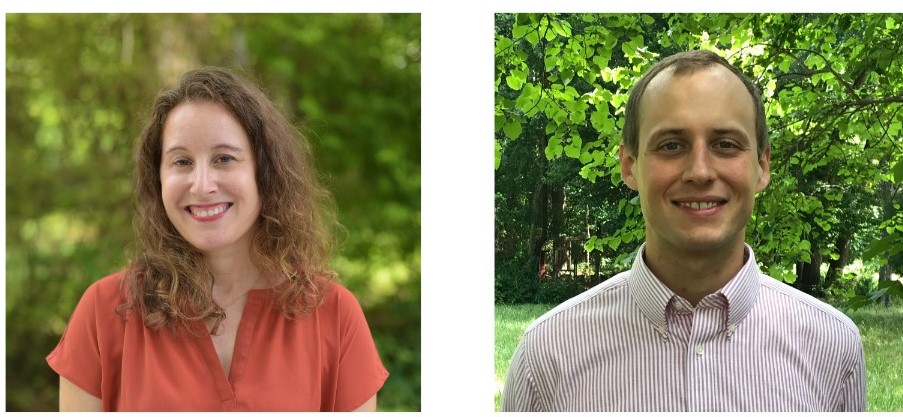
Alexandra Chassanoff, assistant professor at the School of Library and Information Sciences at North Carolina Central University, and Colin Post, assistant professor in Library and Information Science at the University of North Carolina at Greensboro, are the 2021 recipients of the Preservation Publication Award given by the Society of American Archivists (SAA) for their handbook, OSSArcFlow Guide to Documenting Born-Digital Archival Workflows (Educopia Institute, 2020). The award recognizes the author or editor of an outstanding published work related to archives preservation.
Chassanoff and Post’s Guide makes the daunting task of selecting, implementing, and refining workflows for born-digital archival materials more achievable. The Guide, which is open access, describes the steps that are commonly included in digital curation workflows, from acquisition to access and preservation, and provides a process map for readers to produce their own workflow documentation in both visual and descriptive formats. The Guide also provides a set of case studies that illustrate how readers can use these workflows to improve institutional born-digital archives practices. A unique component of the Guide’s publication is three supplemental Video Learning Modules, which map to specific sections of the Guide and provides high-level guidance in creating and using born-digital workflow documentation.
The Guide’s systematic approach to documenting activities for archiving born-digital material is informed by the innovative OSSArcFlow research project, a three-year empirical analysis of twelve institutions at different stages of born-digital workflow implementation and documentation. The steps outlined in the Guide model an approach that codifies the principles and practices of preserving born-digital archives.
The Guide and supplemental videos, which were developed and released with support from the Institute for Museum and Library Services, capture a common, complex, and under-discussed element of digital preservation. There is little material about entry-level processes or broad perspectives comparing multiple institutions. The Guide covers both of these topics effectively.
Sister M. Claude Lane, O.P., Memorial Award: Mary Grace Kosta
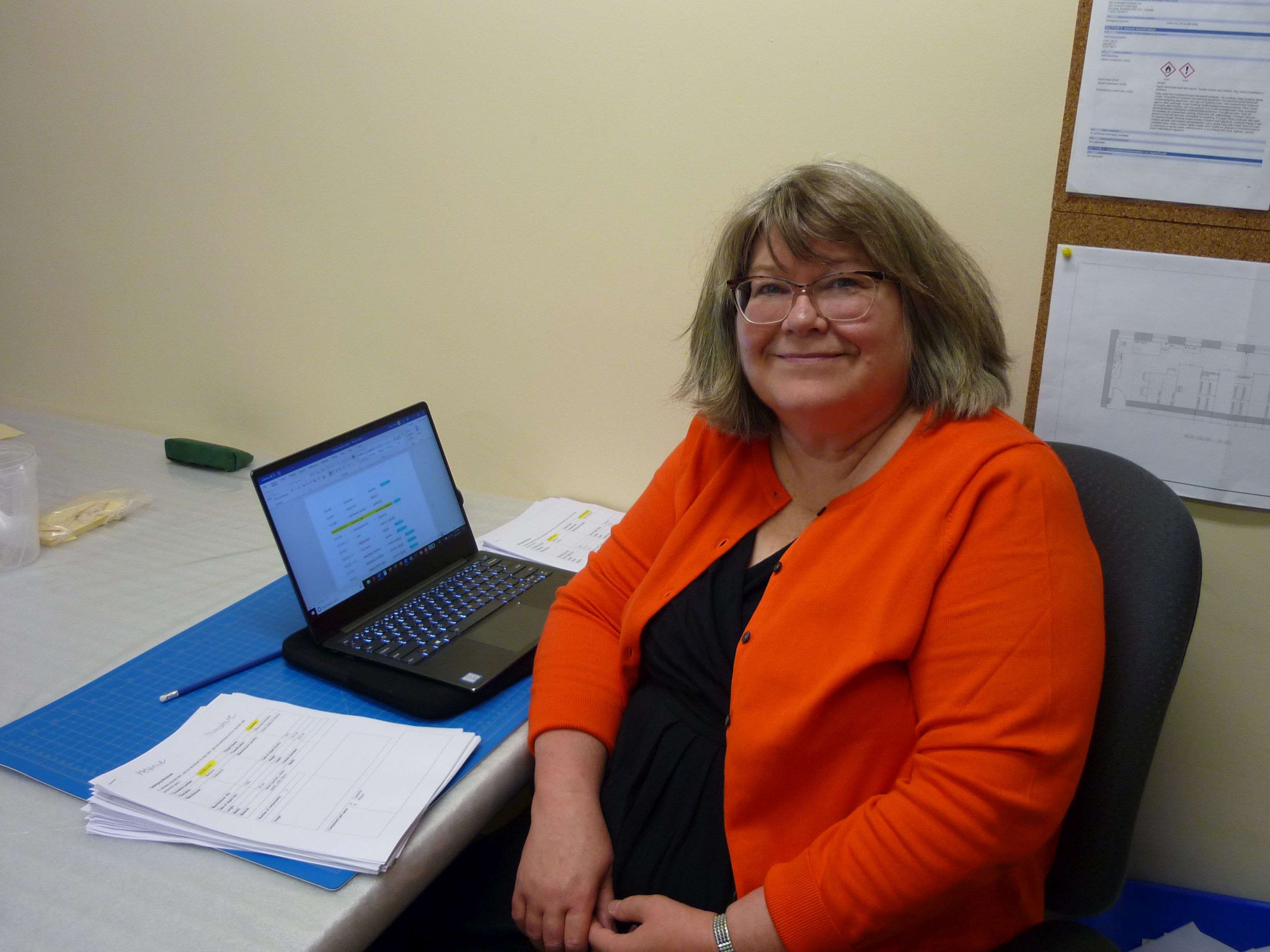 Mary Grace Kosta, congregational archivist for the Sisters of St. Joseph in Canada, is the 2021 recipient of the Sister M. Claude Lane, O.P., Memorial Award given by the Society of American Archivists (SAA) in conjunction with the Society of Southwest Archivists. The award honors an archivist who has made a significant contribution to the field of religious archives.
Mary Grace Kosta, congregational archivist for the Sisters of St. Joseph in Canada, is the 2021 recipient of the Sister M. Claude Lane, O.P., Memorial Award given by the Society of American Archivists (SAA) in conjunction with the Society of Southwest Archivists. The award honors an archivist who has made a significant contribution to the field of religious archives.
In nine years of working as a religious archivist, Kosta has contributed greatly to the growth of the Sisters of St. Joseph archives, the public’s understanding of the congregation’s history, and—more broadly—the field of religious archives. During her tenure as congregational archivist, Kosta consolidated four separate archival repositories while implementing new digital tools and technologies that enhanced the management of the archives as well as its outreach to the public.
In addition, Kosta has served in leadership positions with SAA’s Archivists of Religious Collections Section, Archival Resources for Catholic Collections, the Archives Association of Ontario, the Catholic Archives Group in Canada, and the US-Canada Joint AtoM (Access to Memory) Users Group. Kosta is a frequent contributor to archival newsletters and was instrumental in the publication of four works related to the history of the Sisters of St. Joseph in Canada. She also developed and shared, under a Creative Commons license, a policy manual covering seventeen aspects of archival administration and a processing manual for archives. Kosta regularly presents at workshops and conferences and is active in supporting new archival professionals through a practicum program that delivers instruction in archival methods and museum registration.
Kosta’s willingness to share her expertise and knowledge with other religious archivists is but one of her many outstanding qualities. One supporter wrote that her leadership in the ongoing discussion of the future of religious archives reflects her deep commitment “to excellence in the field of religious archives, in both Canada and the United States.”
Created in 1974, the award honors Sister M. Claude Lane, O.P., a Dominican nun who was the first professionally trained archivist at the Catholic Archives of Texas in Austin.
Spotlight Award: Lee Price
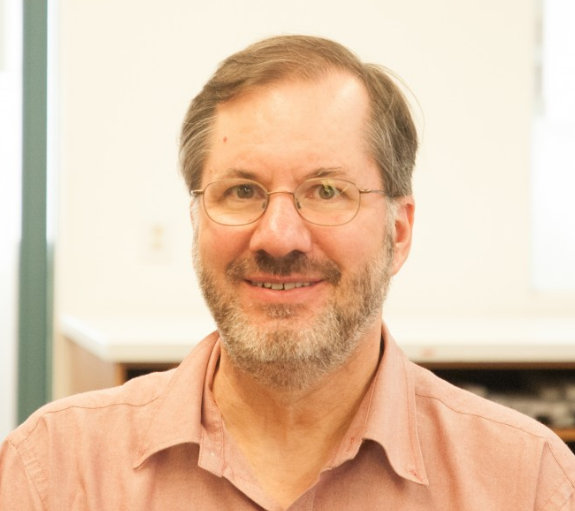 Lee Price, a fundraising professional who specializes in grant writing for cultural institutions, is the 2021 recipient of the Spotlight Award from the Society of American Archivists (SAA). The award recognizes the contributions of individuals who work for the good of the profession and archival collections—work that does not typically receive public recognition.
Lee Price, a fundraising professional who specializes in grant writing for cultural institutions, is the 2021 recipient of the Spotlight Award from the Society of American Archivists (SAA). The award recognizes the contributions of individuals who work for the good of the profession and archival collections—work that does not typically receive public recognition.
Through the Conservation Center for Art and Historic Artifacts (CCAHA), Price consults with museums, libraries, archives, and historic sites on fundraising strategies to preserve their special collections. His expertise and tireless advocacy have made an extraordinary impact on archival institutions, including many smaller institutions with limited support. Over the past twenty years, Price has helped leverage an estimated $100 million in grant funding, including twenty-four successful applications to the National Park Service’s Save America’s Treasures program. He frequently works with archives and libraries pro bono—assessing needs, identifying sources of funding, and writing and reviewing grant proposals.
In addition, Price regularly teaches and publishes on strategic planning for collections and fundraising for preservation and collections care. For five years, he wrote a bimonthly column, "Bringing in the Money," for Public Libraries, the journal of the Public Libraries Association, and he has published more than 500 blog entries on Save America’s Treasures destinations, preserving family histories, and the courtship of his parents as recorded in their preserved love letters. His work with the Institute of Museum and Library Services’ "Connecting to Collections" initiatives, as well as the Historically Black Colleges and Universities Library Alliance’s “Building Capacity” project, has helped preserve the cultural heritage of underrepresented groups.
One supporter wrote: “With great thanks to Price’s knowledge and unrelenting volunteerism, archival holdings across the nation have secured external support allowing these irreplaceable holdings to be assessed, relocated, and digitized for future study and enrichment.” Another commented that “his investment in every institution and individual that he works with is sincere. His joy in learning and sharing knowledge is contagious. The cultural heritage field is lucky that Price has given his time and talents to support our work.”
Theodore Calvin Pease Award: Ferrin Evans
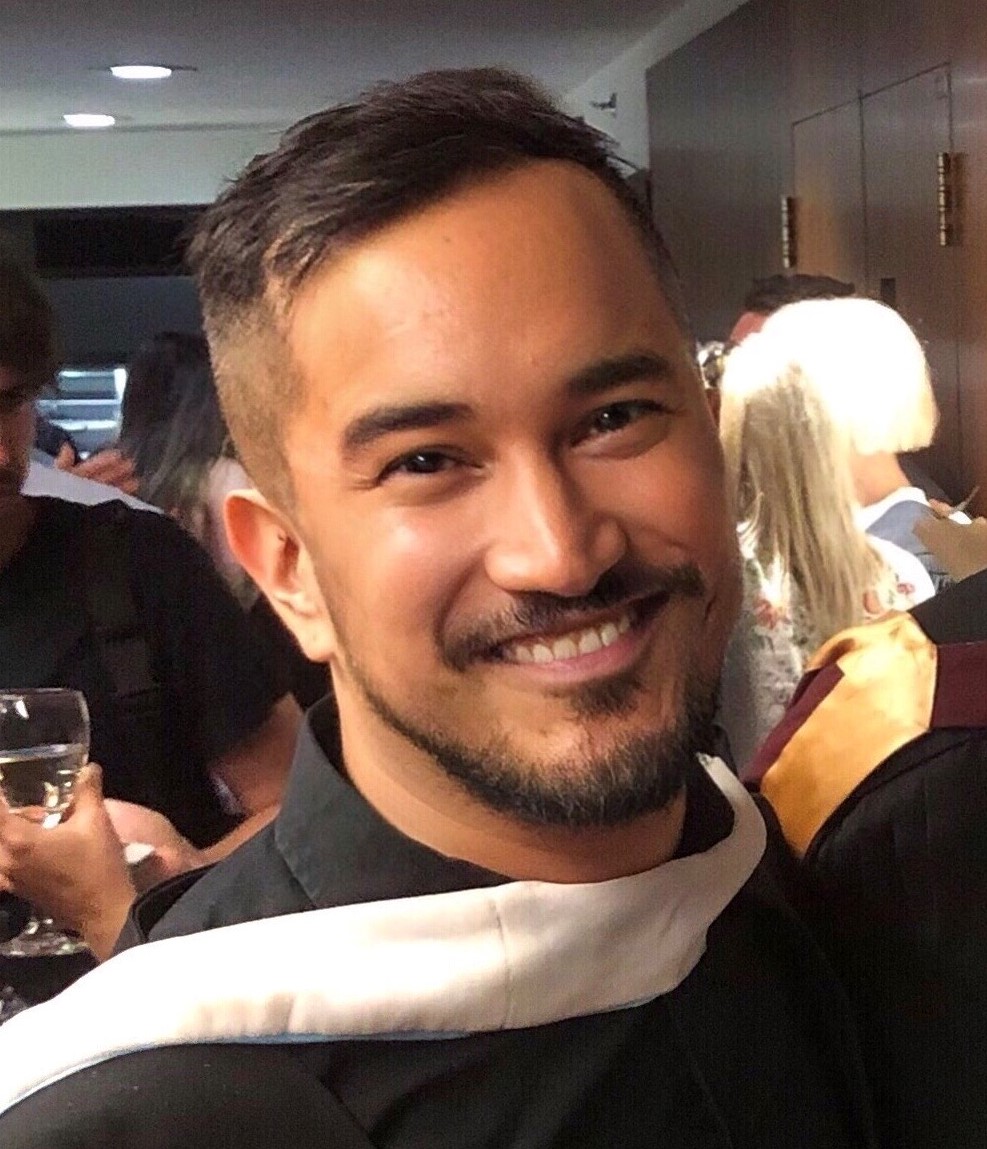 Ferrin Evans, who is pursuing a master’s degree in information at the University of Toronto, is the 2021 recipient of the Theodore Calvin Pease Award given by the Society of American Archivists (SAA). The award recognizes superior writing achievements by a student of archival studies, and entries are judged on innovation, scholarship, pertinence, and clarity of writing.
Ferrin Evans, who is pursuing a master’s degree in information at the University of Toronto, is the 2021 recipient of the Theodore Calvin Pease Award given by the Society of American Archivists (SAA). The award recognizes superior writing achievements by a student of archival studies, and entries are judged on innovation, scholarship, pertinence, and clarity of writing.
Evans’ paper, “Love (and Loss) in the Time of COVID-19: Translating Trauma into an Archive of Embodied Immediacy,” reflects on the personal experience of the loss of a loved one during a global pandemic and broader observations of collecting, community, and the way trauma informs people’s relationship to the archival record. “Usually discussed in the context of fields like social work and psychiatry, secondary trauma is both highly relevant and deeply underexplored within the archival field,” wrote Evans. His work resides in a liminal space, holding both the significance of the archival record and the recognition of its construction.
Evans’ paper will be published in the American Archivist 85, no. 1 (Spring/Summer 2022). His nominator Karen Suurtamm, assistant professor of information at the University of Toronto, noted: “With each section, the paper spirals outward from this singular event to a consideration of the larger impacts of records, memory, and archival work relating to grief and trauma.”
The Awards Committee recognized the importance of speaking to this work in the archival profession and were moved by Evans’ lyrical writing. Evans presents a fresh voice in a troubled time, and challenges archivists to accept the fluidity of boundaries between personal and professional lives.
Waldo Gifford Leland Award: Cheryl Oestreicher
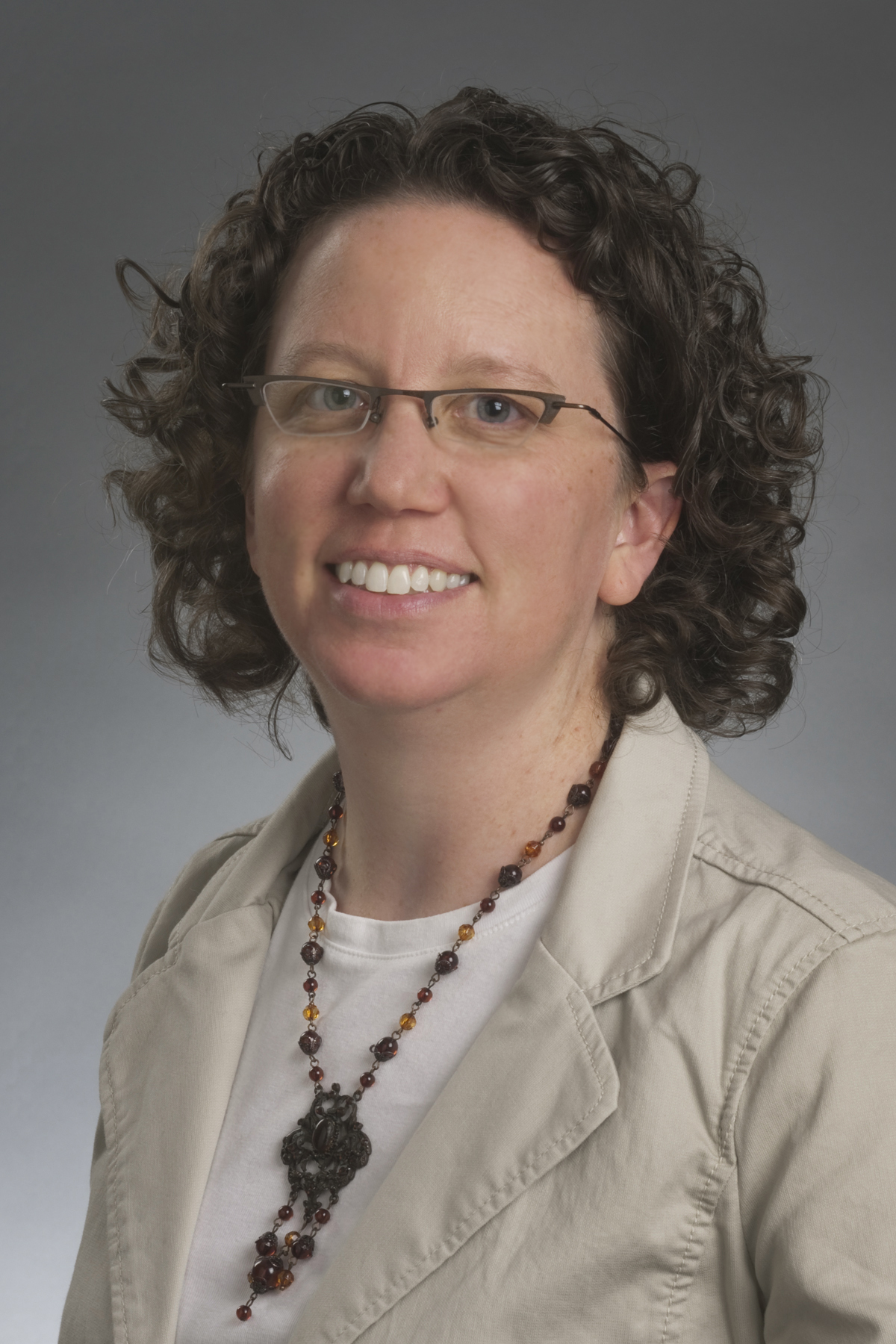 Cheryl Oestreicher, head of Special Collections and Archives and associate professor at Boise State University in Idaho, is the 2021 recipient of the Waldo Gifford Leland Award given by the Society of American Archivists (SAA) for her book Reference and Access for Archives and Manuscripts, published by SAA in 2020. The book is volume 4 in SAA’s Archival Fundamental Series III, a seven-volume series that provides a gateway to contemporary archival best practices. The award is given for writing of superior excellence and usefulness in the fields of archival history, theory, and practice.
Cheryl Oestreicher, head of Special Collections and Archives and associate professor at Boise State University in Idaho, is the 2021 recipient of the Waldo Gifford Leland Award given by the Society of American Archivists (SAA) for her book Reference and Access for Archives and Manuscripts, published by SAA in 2020. The book is volume 4 in SAA’s Archival Fundamental Series III, a seven-volume series that provides a gateway to contemporary archival best practices. The award is given for writing of superior excellence and usefulness in the fields of archival history, theory, and practice.
In her book, Oestreicher incorporates history and theory to contextualize reference and access practices so that readers may recognize how these elements intersect, apply them in contemporary environments, and build upon them to advance the profession. Presented in a highly readable and thoughtful manner, Reference and Access for Archives and Manuscripts has wide applicability for beginning and experienced archivists who work in a variety of institutions. As the profession continues to evolve, archivists can—and should—revise their approach to reference and access practices, with particular attention to removing barriers that prevent some people from accessing archives. Oestreicher effectively breaks down components of physical, virtual, and intellectual access; offers guidance for archivists encountering various accessibility, privacy, and legal challenges; and presents useful case studies and tools for evaluating reference programs.
The Awards Committee noted that Oestreicher’s overview of access restrictions and emerging trends in digital access and outreach is especially important in the post-pandemic world. As Oestreicher writes in her book: “As the conduit between patrons and collections, archivists will have to develop even more skills and knowledge moving forward. . . . It is an exciting time to be an archivist.”